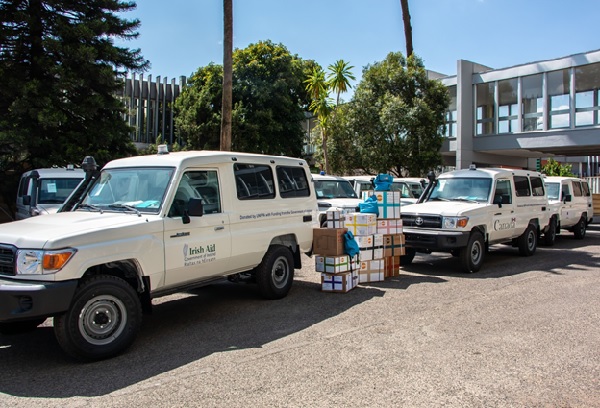
BY GIRMACHEW GASHAW
Emergency Medical Services (EMS) systems are reported to be effective public health intervention to reduce mortality related to injuries and acute medical illnesses.
As a research article conducted conjointly by many researchers and published under the title; “Trends and barriers of emergency medical service use in Addis Ababa; Ethiopia” state citing the World Health Organization, Ethiopia has amongst the highest road fatality rates in Africa with 68 fatalities per 10,000 vehicles per year. Furthermore, 28 percent of emergency room visits in Ethiopia are related to trauma, which predominantly affects younger and economically productive socio demographic group.
In addition, non-communicable diseases are increasing; cardiovascular disease accounts for 24 percent of adult deaths. The high burden of trauma and acute illnesses, coupled with the increasing elderly population in Addis Ababa, therefore, demands improved access to an EMS system, the study stated.
In fact, over the past decade, in-hospital and pre-hospital emergency care have experienced dramatic development in Addis Ababa. Emergency rooms are being staffed by emergency specialist doctors and nurses. Advanced trauma care providers and specialty centers, including cardiac and trauma care, are increasing in number. But, it is reported that emergency patients are arriving to the treatment centers too late; after the golden hour has already passed or having already developed complications.
Especially, when we go to rural parts of the country, the scope of the challenge is immense. Considering the fact on the ground, the Ministry of Health and its partners are toiling to address facility challenges for providing better emergency services to the people in need.
Recently, the United Nations Population Fund, the UN’s Sexual and Reproductive Health Agency, donated ten high-spec ambulances worth approximately 24.5 million Birr to the Afar, Amhara, Benishangul-Gumuz and Tigray states purchased with the funding of the governments of Canada, Ireland and Japan as part of their support to UNFPA Ethiopia’s humanitarian response.
The ambulances are said deployed to strengthen the referral linkage for emergency obstetric, new-born care and other critical services at hospitals in the four regions whose health system have been devastated by the recent conflicts.
“We know that more sexual violence survivors than counted are waiting at the other end of the trips these ambulances are about to take said Mr. Stéphane Jobin, Ambassador of Canada in Ethiopia, during the hand-over ceremony held at the premises of UNECA. Access for the survivors to services and access for the ambulances within their regions go hand in hand. Access is absolutely critical, he added.
For her part Nicola Brennan, Ambassador of Ireland in Ethiopia said: “the provision of ambulances is a continuation of Ireland’s longstanding support to the health sector in partnership with the government, UN agencies and Civil Society. Currently, Ireland
is supporting the continuity of life-saving health services, including maternal health and support for victims and survivors of sexual and gender based violence in Afar, Amhara, Somali and Tigray states, with grants of 10.6 Million Euro for a joint UNICEF-UNFPA program. “We sincerely hope the ambulances offered to regions will greatly contribute to improving access to health services, including for the victims and survivors of sexual and gender based violence. We warmly welcome the recent permanent Cessation of Hostilities agreement, including the commitment to the restoration of all basic services.”
“I sincerely hope that the new ambulances will strengthen the health referral system in the regions to reach out to all those women and girls in need, and also serve as a symbol of the enhanced friendly relationship between the people of Japan and the people of Ethiopia,” said Ito Takako, Ambassador of Japan in Ethiopia.
The health system and services in the conflict affected areas of the Afar, Amhara, Benishangul-Gumuz and Tigray states have been seriously compromised by the situation impacting access to sexual and reproductive health information and services. “The ambulances that will strengthen the referral linkage in addressing obstetric complications and other critical cases thereby enhancing the efforts at promoting safe delivery and ending preventable maternal deaths,” said Ms. Suzanne Mandong, UNFPA Representative. THE ETHIOPIAN HERALD 20 DECEMBER 2022





